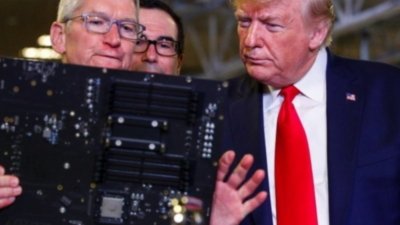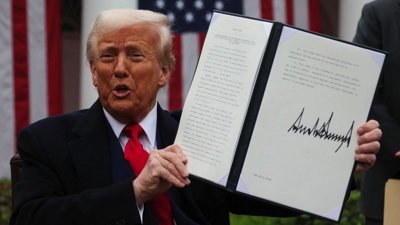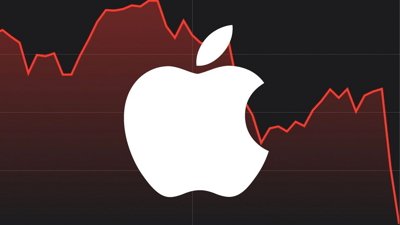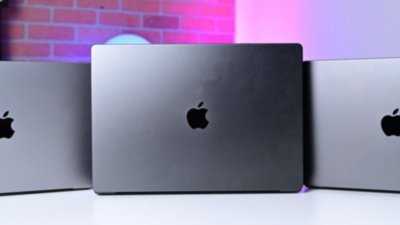Apple's chargers and iPhone and iPad cases have so far been subject to tariffs on Chinese imports without affecting U.S. buyers, but that could be about to change.
Official prices for those accessories haven't moved since before 10% tariffs went into effect in September 2018, The Verge noted. Higher-profile Apple products like iPhones, AirPods and the Apple Watch were made exempt.
The tariffs that do affect Apple rose to 25% on Friday after U.S. President Donald Trump made good on a negotiation deadline. Some reports have claimed that China backtracked on earlier promises, and U.S. negotiators have been unwilling to budge on issues like intellectual property rules.
China retaliated on Monday by announcing hiked tariffs on $60 billion in U.S. goods, set to take effect June 1. Rates will range from 5% to 25%, the latter on products like natural gas, petrochemicals, soy oil, and peanut oil.
While Apple is thought to have high profit margins on accessories — third-party options are often much cheaper — it's uncertain how deep a cut to those margins it might be willing to accept. To offset the situation it may be able to secure discounts from suppliers, or even shift manufacturing outside of China, but the second option would likely be costly and time-consuming.
Apple partners Foxconn and Pegatron are working on building iPhones in India, though the scale of Indian operations is unlikely to reach Chinese levels in the near future.
Apple in September issued a letter to U.S. Trade Representative Robert Lighthizer, warning a then-proposed tariff hike would ultimately result in higher prices for U.S. consumers.
 Roger Fingas
Roger Fingas

-m.jpg)






 Malcolm Owen
Malcolm Owen
 Oliver Haslam
Oliver Haslam
 Amber Neely
Amber Neely
 Marko Zivkovic and Mike Wuerthele
Marko Zivkovic and Mike Wuerthele

 Andrew Orr
Andrew Orr











30 Comments
Hit 'em ever harder is my opinion. We're not playing hardball yet, merely softball.
The IP rights is one of the most important issues and of course the US should not budge a single inch on it.
Who wants to agree to a deal where you agree to allow the other party to continue to steal from you?
Whatever tariffs China introduced recently, let's double that and hit 'em again.
Small items like cases or chargers are not a big deal in my opinion. If the average consumer has to pay a little bit more for a few accessories, then it's worth it, because the long term goal is much more important than anything that will happen in the short term.
Should the next round of tariffs cover the iPhone, I wonder if the big winner will be Samsung. They have substantial manufacturing capacity in Vietnam and may be able to avoid tariffs for their iPhone competitors. That would hand Korean based Samsung (which like Chinese manufacturers has aped Apple's for years) a significant advantage in Apple's home market. As switching ecosystems becomes less commonplace, short term shifts in competitive advantage can become long term shifts in customer base.
Beware the law of unintended consequences.
Apple has been shortsighted for many years, manufacturing the vast majority of its devices in China. Some might say they were driven by greed. China production costs are so low it was easy to keep expanding manufacturing there. But Tim Cook, the uber-supply chain expert should have seen the mess they were creating relying exclusively on Chinese production for their highest revenue products. Imagine if there ever was a war with China? That would terminate Apple production. Rather than focusing on how thin and beautiful Apple products are, Tim and company had better move quickly on diverse production sites. Including manufacturing in the USA. There’s no reason Macs can’t be produced in the US with highly advanced robotics at a cost similar to Chinese production. Apple has been driven too much by quarterly Wall Street numbers. They need to get strategic about manufacturing. And fast!!